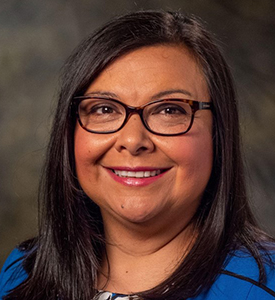
Spilling the T: Chisme Call and Response
Disclaimer: We are human. All of our actions are imperfect. So, chisme is imperfect as is every form of human communication. Yes. Chisme can be harmful and sinful. However, I ask that while reading and engaging this call and response, please spend some time imagining and listening to the possibilities of what attention to chisme can teach us about God-talk. Before moralizing chisme and discounting it as only sinful, join me in examining how chisme can function in the creation of wisdom through its messy, interwoven, and affective existence. I invite us to embrace that which “Enlarge the Space of Your Tent: Working Document for the Continental Stage, Synod 2021 -2024,” page 102 has asked of us: “The free and gratuitous attention to the other, which is the basis of listening, is not a limited resource to be jealously guarded, but an overflowing source that does not run out, but grows the more we draw from it.”
OK. Now, I am going to share some chisme...
We, like Jesus, are incarnated and our bodies know!
[CALL] Humans only know through our bodies. As embryos grow in the womb and organs begin to develop, those organs begin to function.
[RESPONSE] We, like Jesus, are incarnated and our bodies know!
[CALL] Newborns recognize voices they hear regularly.
[RESPONSE] We, like Jesus, are incarnated and our bodies know!
[CALL] The movement and swaying of dancing in womb, in arms, on one’s own can be understood as a form of teaching into our traditions. For some this teaching happens in all of these places and spaces. For others, this form of teaching happens only in womb or in arms or on one’s own. However, in these places and spaces, our bodies attain wisdom.
[RESPONSE] We, like Jesus, are incarnated and our bodies know!
[CALL] Our bodies learn.
[RESPONSE] We, like Jesus, are incarnated and our bodies know!
[CALL] Our bodies also know when someone has mistreated us or when we have experienced the mistreatment of others.
[RESPONSE] We, like Jesus, are incarnated and our bodies know!
[CALL] Many Christians believe in creation as Imago Dei – created in the image and likeness of God.
[RESPONSE] We, like Jesus, are incarnated and our bodies know!
[CALL] And that image of God is three persons one God which we call the Trinity.
[RESPONSE] We, like Jesus, are incarnated and our bodies know!
[CALL] We believe that God chooses to experience life as fully human so the second person of the Trinity, the Word becomes Incarnate. We believe that this Incarnate Word was conceived and born by Mary and did not just drop into earth as an adult. Although, as Sor María Anna Águeda de San Ignacio reminds us that God could have chosen salvation history to occur in any way.
[RESPONSE] We, like Jesus, are incarnated and our bodies know!
[CALL] The Greek word for God is Theós Θεός
[RESPONSE] We, like Jesus, are incarnated and our bodies know!
[CALL] Logos is Greek for both Word and reason.
[RESPONSE] We, like Jesus, are incarnated and our bodies know!
[CALL] We can then build on the wisdom of Diana Hayes and say that theology is God-talk. It is also a nod to the Incarnate Word. It is also a nod to how we as humans grow wise – reason – in relationship with God.
[RESPONSE] We, like Jesus, are incarnated and our bodies know!
[CALL] So, if theology is God-talk and the way we grow in wisdom and knowledge of God as scriptures say about the infant Jesus, then our ways of communicating are directly linked to our own incarnations, our own fleshly existence, our own human bodies. AND…
[RESPONSE] We, like Jesus, are incarnated and our bodies know!
[CALL] Sure. Professional theologians study for many years to write and publish theology. But, everyone who engages in thinking about and communicating with the divine engages in God-talk, and in what I am calling theological languages. We engage theological languages through our own incarnations and with every difference and particularity which makes each one of us unique because…
[RESPONSE] We, like Jesus, are incarnated and our bodies know!
[CALL] We are people of God in places of God – el pueblo de Díos. Theological languages, therefore, exist in and through el pueblo de Díos.
[RESPONSE] We, like Jesus, are incarnated and our bodies know!
[CALL] One of these theological languages is chisme. Chisme contends with Truth from an experiential perspective. Chisme is incarnational and can be found in Christian scriptures. Chisme is a language of lo cotidiano. Chisme is its own contextualized form of communication related to gossip and the T. Chisme related to gossip has historically religious significance. Chisme related to the T critically contends with structures of power.
[RESPONSE] We, like Jesus, are incarnated and our bodies know!
[CALL] Phrases like “spilling the T”, “pouring the T”, and “the T is hot” connect our knowledge with many times unspoken truths known by our bodies.
[RESPONSE] We, like Jesus, are incarnated and our bodies know!
Leave a Reply